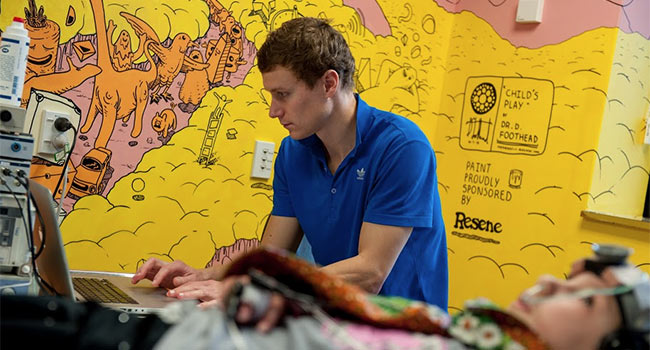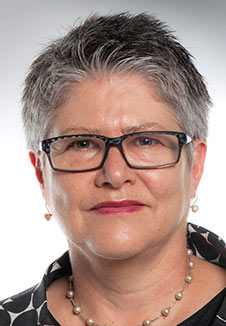
Do you like interacting with babies or prefer sitting in front of a computer designing the back of a complicated Labview-based analysis programme?
These seemingly diverse personal interests could both lead you to undertaking a post-graduate degree in the Department of Paediatrics and Child Health at the University of Otago Wellington.
Just because the academic staff in this department are all medically-trained and working clinically as paediatricians doesn't mean their research is restricted to projects for which you need a medical degree before joining the team.
In fact, in some respects we would prefer that our postgraduate students don't have a medical degree. We already have plenty of those in the department!
Multi-disciplinary research the best
Research is always better when done by a multidisciplinary team. An example would be our current PhD student Lucie Zwimpfer who is an infant mental health psychotherapist. She is looking at the effect of empathetic vocal soothing on the infant's experience of stress during heel-prick procedures. The Wellington Hospital Neonatal Intensive Care Unit (NICU) is a great source of subjects for her.
We are also planning projects in the NICU looking at a range of cardiac and respiratory variables in preterm infants. A basic degree in physiology would be a great starting point there.
Colleagues in the combined Adult/Paediatric University-based Sleep Investigation Unit are doing interesting geeky things with EEG signals during sleep. It would be great to look at this in children with different developmental disorders and a neuroscience degree would be a perfect background for getting into that work.
Academic staff member Dr Max Berry's interest is translational research with an animal model of preterm birth. There are a range of entry points for various science interests into this research, from physiology or pathology to genetics or nutrition/metabolic function.
Assoc.-Prof Lynette Sadleir is part of an international research group that studies the genetics of epilepsy. Apart from the genetics interest, there are other aspects to this that could be studied. Do we know, for instance what it means to families to be told that their disease definitely has a genetic basis?
Assoc.-Prof Esko Wiltshire is interested in the metabolic and cardiorespiratory outcomes of diabetes and obesity. Again a physiology background would be a useful starting point or a biochemistry major.
Dr Thorsten Stanley has research interests in probiotics and allergy. Could microbiology get any more interesting than that?
We have small problems
 What are the advantages of joining a paediatric research team? Well, all your problems will be small ones! It is true that little subjects can be a bit of a challenge but they also provide many rewards. There are particular practical advantages. If your subject is 3 months old and lying the wrong way round you can pick them up and turn them around. It's a bit harder to do that with 120 kg adult!
What are the advantages of joining a paediatric research team? Well, all your problems will be small ones! It is true that little subjects can be a bit of a challenge but they also provide many rewards. There are particular practical advantages. If your subject is 3 months old and lying the wrong way round you can pick them up and turn them around. It's a bit harder to do that with 120 kg adult!
In Wellington we have a new designated space where clinically based research on human subjects can take place – The Centre for Translational Physiology. This Centre has a dedicated Paediatric room that is decorated and equipped appropriately.
One of the best things about participating in research with infants and children is that you are starting at the beginning of life when change and improvements in outcomes can still happen. We think it is pretty exciting. You should try it!
My colleagues in the other two University of Otago Departments of Paediatrics (in Christchurch and Dunedin) will offer similar opportunities. Just remember that Wellington is not called the 'coolest little capital in the word' for nothing!
Professor Dawn Elder
Head of Paediatrics and Child Health
University of Otago, Wellington
An e-newsletter for people interested or involved in postgraduate study at the University of Otago
Archive
Subscribe
The Otago Post is distributed via email three times a year.
Subscribe to the Otago Post.